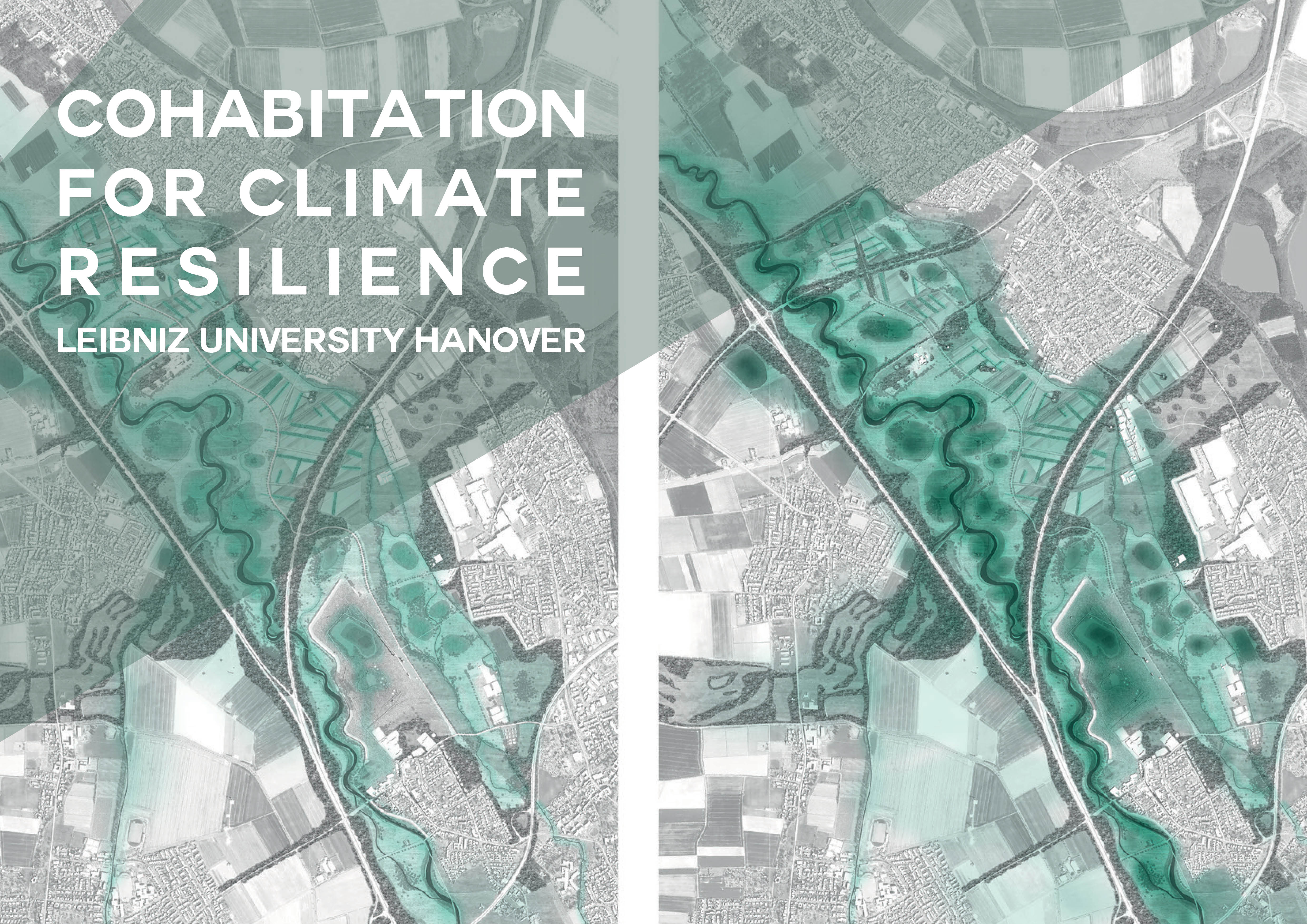
Mutualism landscape: landscape architectural strategies for the revitalization of the 2021 flood landslide area in Erftstadt, Germany
Master thesis
Gottfried Wilhelm Leibniz University Hanover
As the ability of humans to change nature continues to increase, humans have become a major force in the evolution of the world. This also signifies the beginning of a new geological era, the Anthropocene. Due to climate change, the frequency and intensity of natural disasters have increased. In some highly developed industrial areas, people continue to alter the earth‘s surface to extract more raw materials. Unfortunately, this excessive transformation has significantly reduced the resilience of these areas to natural hazards. The sustained summer rainfall of 2021 caused water levels in the Erft River basin to rise and quickly exceed the assumed threshold for extreme conditions. The floods eroded large areas of agricultural land, destroyed infrastructure, and caused enormous landslides at the edge of the Blessem sand and gravel pit in Erftstadt. The study project relies on the concept of mutualism in biology to explore the relationship between humans and nature in highly developed industrial areas. In terms of structure, this study considers the middle and lower Erft River basin as a large-scale study area and the landslide area with its immediate context as a small-scale planning area. The benefits and significance of the methodology for achieving the mutualism landscape for the region are explored by moving from an open space development strategy for the middle and lower Erft River basin to a specific landscape reallocation concept for the landslide area and related areas in the vicinity.
